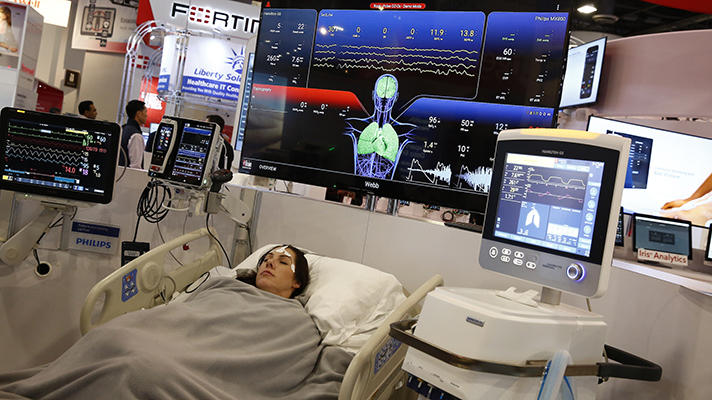Telehealth, analytics, mobile tools make hospitals attractive acquisition targets, report says

While strong financial performance is an understood driver of merger and acquisition activity, deal-seekers are also getting in the game in hopes of benefitting from new or better technology that can enhance performance, cure operational issues and even incite disruption. That's according to a new survey by West Monroe Research conducted in partnership with Mergermarket.
The top challenges in seeking those coveted healthcare merger deals cited by respondents included the shortage of attractive targets, according to 25 percent, and though definitions of attractive varied, the survey showed they focused mainly on a lack of targets valued at $100 million or less. Other obstacles include difficulty finding companies with the right technology or products to sustain growth and finding potential targets that had the optimal strategic fit for the business.
For those companies or systems doing the acquiring, technological advances are both a blessing and a curse, with 36 percent of respondents saying the greatest challenge to healthcare organizations over the next one to three years is the rapid pace at which technology is changing. "This sentiment is driving M&A interest in companies with strong IT systems," the survey said.
Mobile tools and data analytics make a system or company an attractive M&A target, specifically those with products enabling mobile capabilities and creating actionable insights from data.
Buyers want targets that are capable of evolving easily and quickly in response to shifting landscapes or those capable of driving the shift themselves. New digital tools present a huge opportunity there, as 48 percent of respondents said one of their top two strategic drivers for making healthcare acquisitions was the chance to disrupt incumbents through the use of technology.
Survey respondents listed the technologies deemed most attractive at targets: mobile tools (49%), data analytics capabilities (37%), and the use of blockchain (30%).
The survey said 25 percent of respondents cited wearables, sensors and trackers and 20 percent pointed to telehealth tools as drawing interest among buyers as well.
Such interest in technology, however, can come with pitfalls, especially when it comes to security. For example, 49 percent of respondents said they weren't happy with the compliance and cybersecurity due diligence in their recent healthcare deals and 58 percent of respondents said they discovered a cybersecurity problem at a healthcare company they'd acquired after the deal was sealed.
This pervasive dissatisfaction with the quality of due diligence compounds the need for buyers to throw extra manpower and time to that process, since the competition for M&A is serious and that can shorten timelines for getting deals done.
"For all the emphasis on software and hardware, the human element remains essential," the report says. "The best cybersecurity programs are dangerously ineffective without a security-minded culture. And when it comes to due diligence, the clash between corporate cultures is a larger problem than incompatible IT."
Twitter: @BethJSanborn
Email the writer: beth.sanborn@himssmedia.com
























